ARTICLE AD
Seventeen postgraduate students have been awarded research grants under the Post COVID-19 Skills Development and Productivity Enhancement Project (PSDPEP).
The project aimed to contribute to Ghana’s sustainable post-Covid-19 recovery in the health sector and the restoration of livelihoods, income, employment opportunities and private sector development.
It also seeks to promote technical and entrepreneurship for job creation among the youth and women.
The grants, presented at a brief ceremony, are part of a broader initiative funded by a $28.5 million grant from the African Development Bank (AfDB) to enhance health-related skills development and promote entrepreneurship among youth and women.
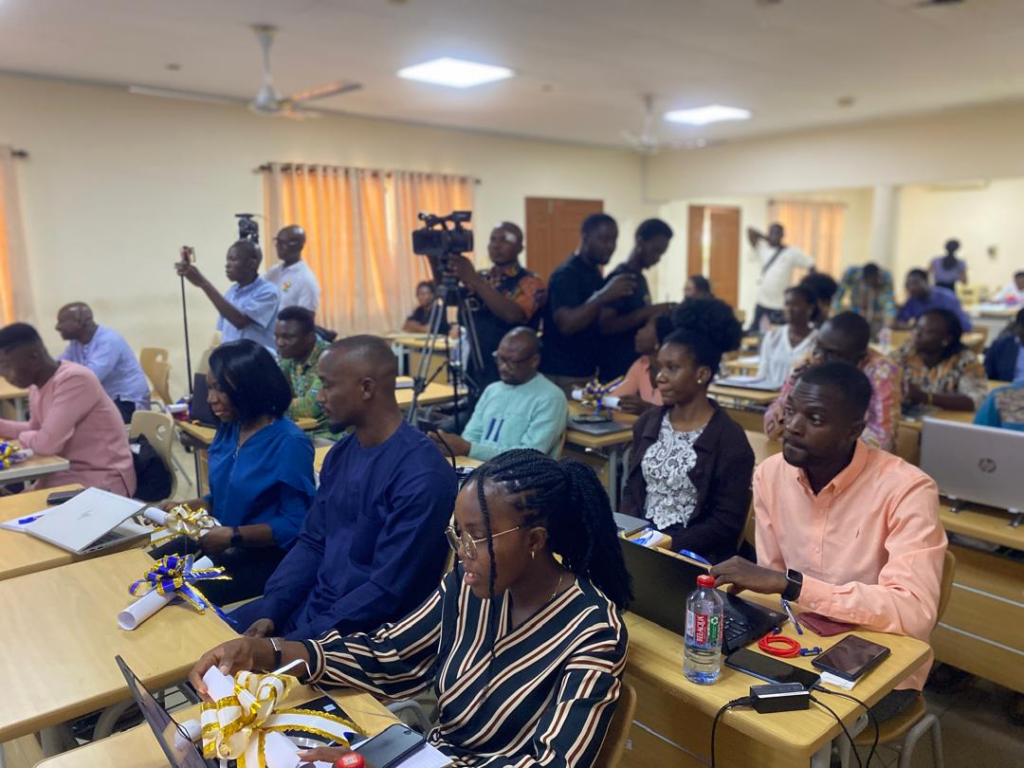
Speaking to journalists on Friday, March 28, Abass Nurudeen, CEO of the Social Investment Fund, explained the origins and goals of the scholarship scheme, which was established as an immediate response to the challenges posed by the pandemic.
“As you may be aware, in 2022, the African Development Bank entered into an agreement with the PSDPEP project. This was in the immediate aftermath of the COVID-19 pandemic, which revealed many inadequacies in our biomedical infrastructure,” he said.
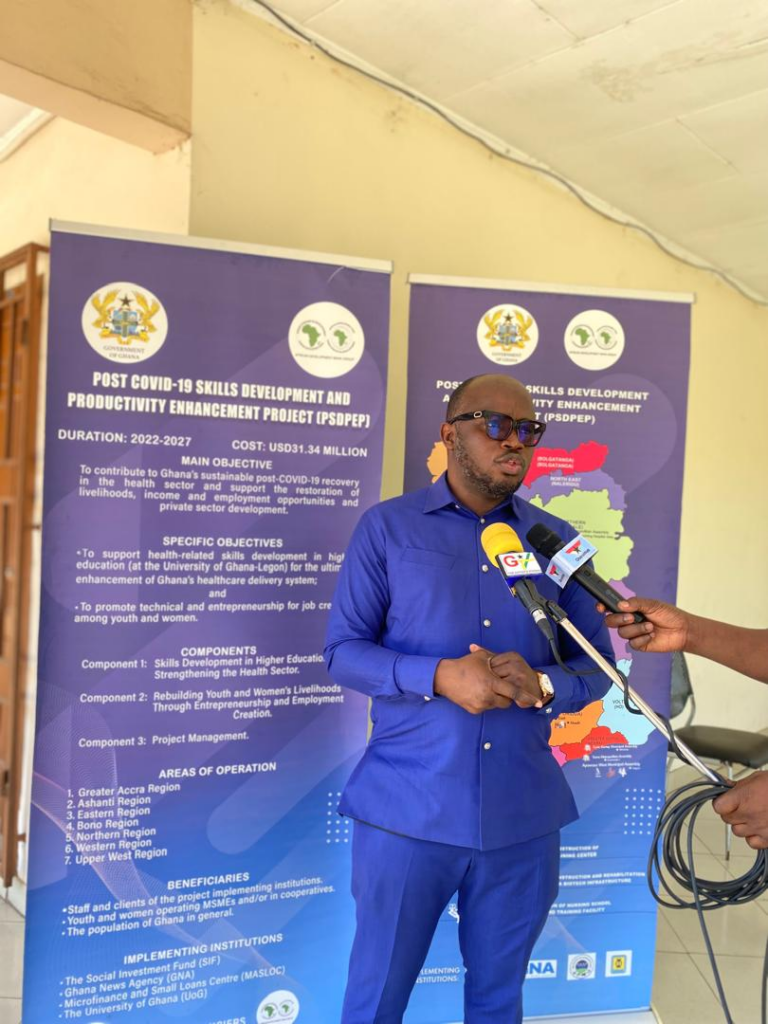
According to him, the COVID-19 crisis highlighted severe shortcomings in healthcare and biomedical sectors, which prompted the design of a targeted programme.
The aim was to provide essential training for students in biomedical fields, focusing on critical sectors that were lacking during the pandemic.
“In light of the pressing need to strengthen Africa’s biomedical capacity, we conceptualised a training package for students, allowing them to gain specialised knowledge in the biomedical space. This was envisioned as a crucial part of the PSDPEP project,” Mr Nurudeen added.
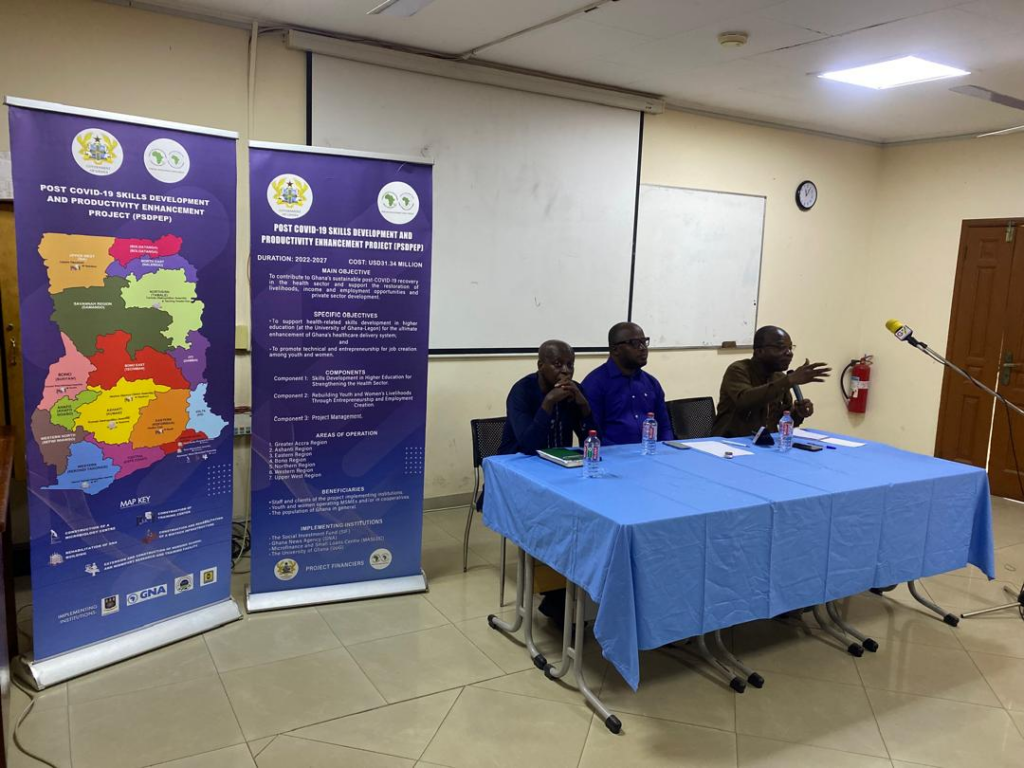
As the programme reaches its final phase, today, Friday, March 28, marks the culmination of the scholarship’s rollout, with the announcement of the latest awardees.
The initiative aims to fill the gaps that were exposed in the biomedical sector, with the hope that the scholarship recipients will go on to play an integral role in strengthening the field.
He revealed that one key aspect of the programme was the strict qualification criteria, which ensured that only the most qualified candidates were selected.
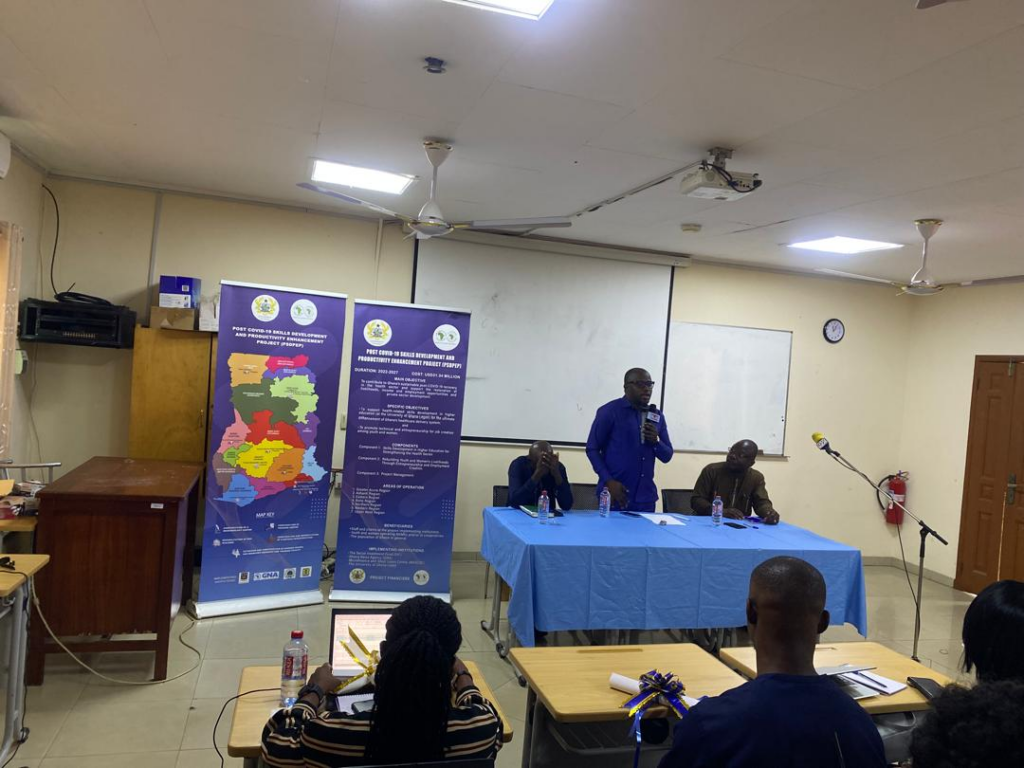
“The qualification requirements for the scholarship were quite stringent. To be eligible, candidates needed to have attained a second-class upper in any biomedical-related subject,” Mr Nurudeen explained.
The selection process, which involved thorough assessments, accounts for the time it took to fully roll out the scholarship programme.
The CEO commended Rev. Prof. Kwamena Sagoe, Project Lead for the Medical School component of PSDPEP, for his efforts in ensuring the successful implementation of the initiative.
The Department of Medical Microbiology, which is hosting the part of the project at the University of Ghana Medical School (UGMS) (proposed Peptide and Antimicrobial Research Centre), which oversees the research grants, selected the 17 successful students from a pool of applicants across Ghana and the West African sub-region.
The 17 beneficiaries, including 10 MPhil students and seven PhD candidates, will conduct pioneering research utilising synthetic peptides, monoclonal antibodies, and natural products to tackle emerging and re-emerging infectious diseases.
Mr Elorm Yao Dordor, an MPhil Biomedical Sciences student at the University of Health and Allied Sciences and a staff member at the Food and Drugs Authority (FDA), expressed his sincere gratitude for being awarded the research grant.
He described the grant as a much-needed and timely intervention that would significantly benefit young African researchers, particularly those working in the fields of biotechnology and vaccine development.
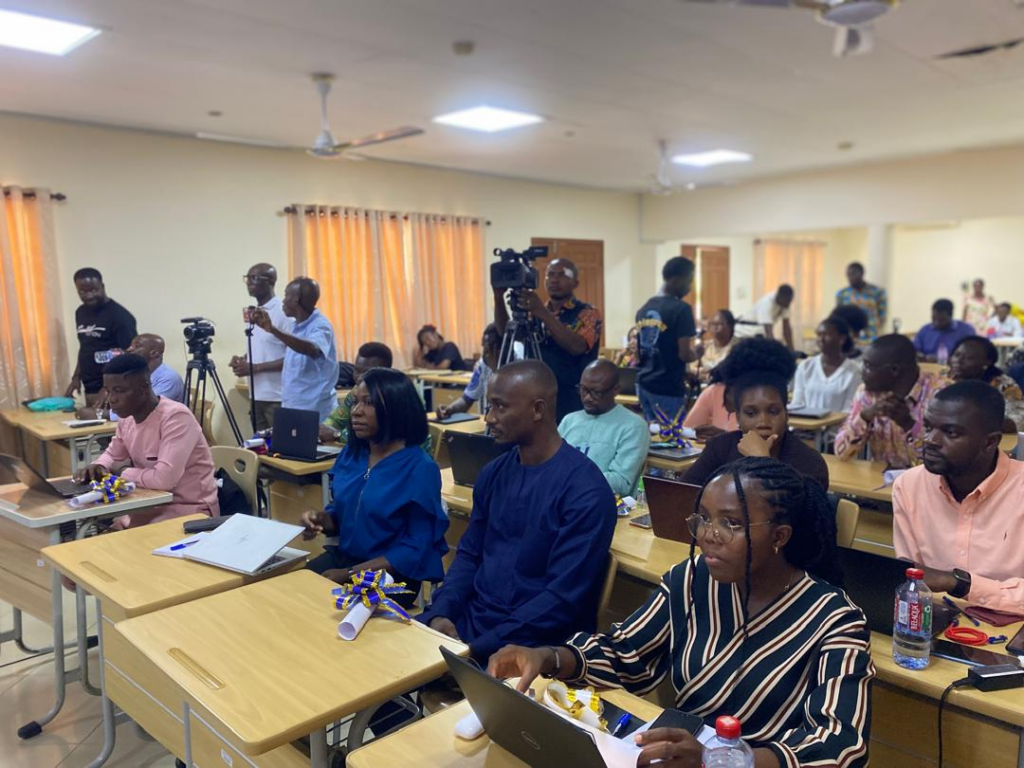
Background
In June 2022, the GoG signed a 5-year (2022-2027) agreement with the AfDB to implement a PSDPEP. The PSDPEP is being funded from a grant facility of $ US 28.5 million from AfDB.
The main objective of PSDPEP is to contribute to Ghana’s sustainable post COVID-19 recovery in the health sector and support the restoration of livelihoods, income and employment opportunities and private sector development.
The specific objectives of PSDPEP are: (a) to support health-related skills development in higher education at the University of Ghana for the ultimate enhancement of Ghana’s healthcare delivery system; and (b) to promote technical training and entrepreneurship for job creation among youth and women.
The project has two interrelated technical components and one on project management. They are (a) Skills development in higher education for strengthening the health sector(b) Rebuilding youth and women’s livelihoods through entrepreneurship and employment creation, and (c) Project Management. The Ministry of Finance is the Executing Agency whilst the SIF is the Implementing Agency for the project. The SIF has established a PIU within its structure for implementation of the Project.

DISCLAIMER: The Views, Comments, Opinions, Contributions and Statements made by Readers and Contributors on this platform do not necessarily represent the views or policy of Multimedia Group Limited.

 
 
 
 
 
 
 
 
 

 2 days ago
14
2 days ago
14 

